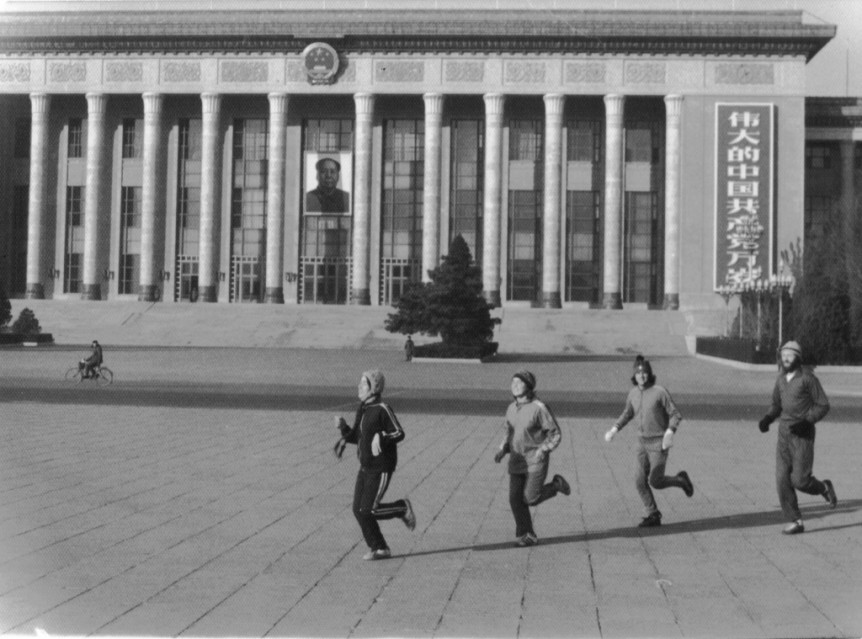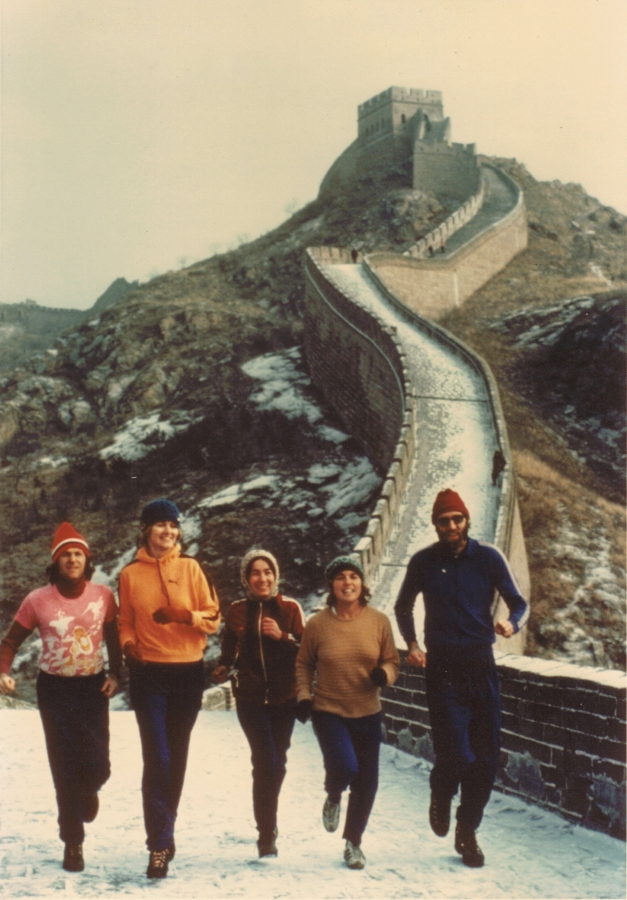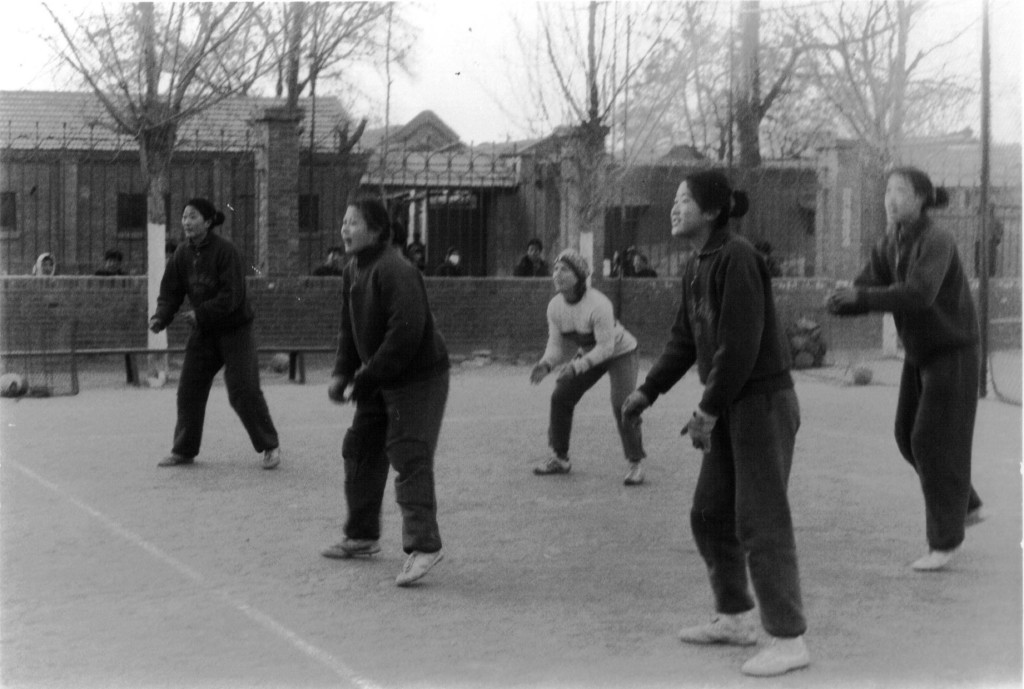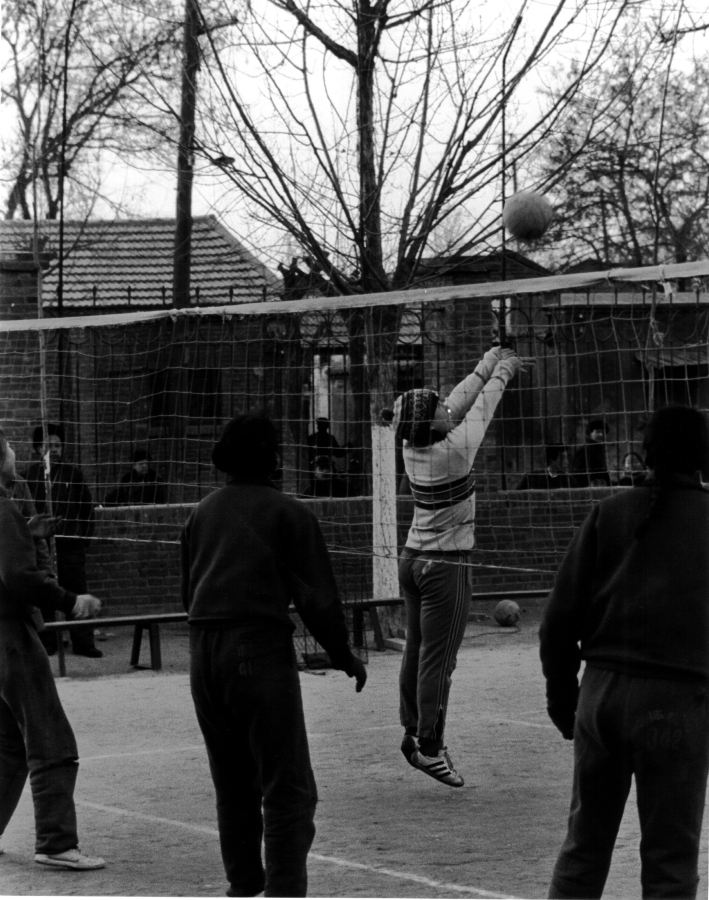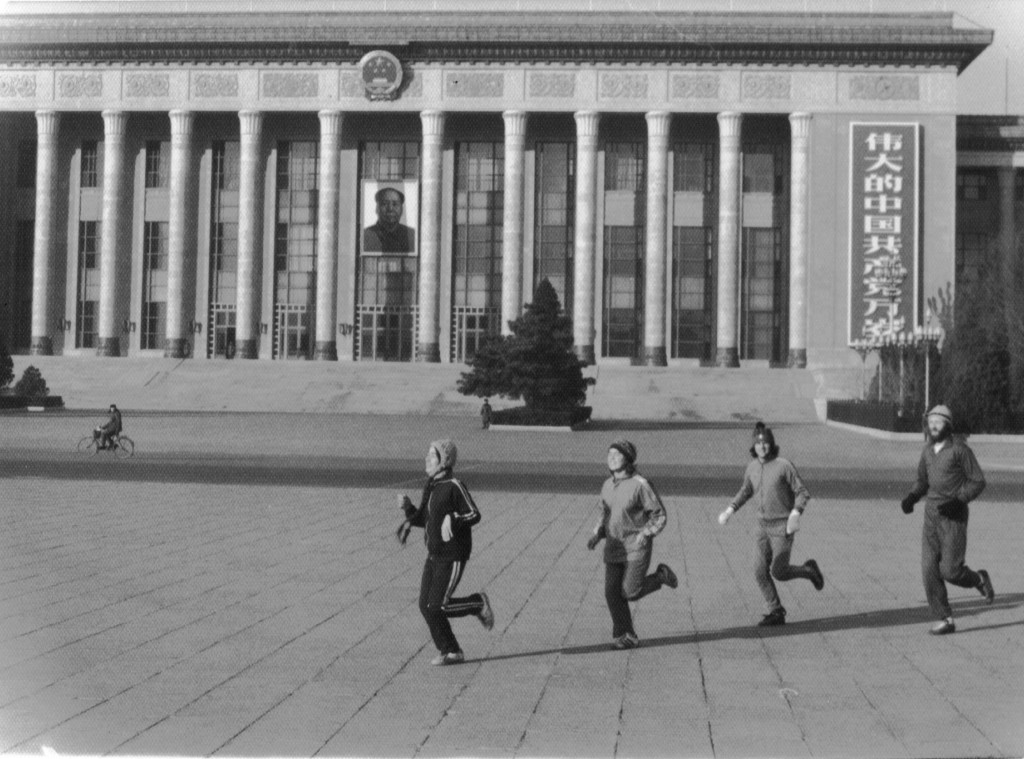This morning’s news that the world’s wealthiest countries were having an economic meeting in Bejing grabbed my attention. Whenever I hear anything about China’s new dominance as a world power, a part of me remembers what China was like in 1976 and I shake my head in disbelief.
When Mao Tse-Tung took power in 1949, China became a closed society, one that became mysterious to a whole generation of people who grew up knowing that “Red China” was to be feared and avoided. President Richard Nixon was the first American to pierce that Bamboo Curtain as it was called when he visited in 1972. The USA Ping Pong team traveled to China next, then an American Track and Field team visited in May of 1975. My roommate at the time was America’s best hurdler and part of that team. She came back telling great stories of an entirely different world, something she could never have imaged. Being a huge traveler, myself, I wanted to go, too. So when Phil Shinnick, a former world record-holder in the long jump, put together a group of twenty-two amateur and professional athletes, sports sociologists, and other diverse interested people for a sports tour of China in January, 1976, I made sure I was part of the contingent.
We flew into Hong Kong and spent one night there knowing it was our last night in “civilization.” The next morning we got onto the Shum Chun train, which took us from Hong Kong to the border with China. We felt like spies sneaking into a foreign land when we had to take our luggage off that train, walk across the border, and get onto a Chinese train. First stop was Canton. We checked into a hotel and here came the first surprise – no room keys. The clerk handed us a piece of paper with the room number on it, but there were no locks on the doors, so no keys needed. We were told there was no theft and they did not believe in privacy. OK, that was different.
Every day we visited several sports schools or training centers. What struck all of us non-smoking athletes from America was the fact that we were always served tea and cigarettes at every stop. A lovely china cup of green tea, a lid on top to keep it warm, and two cigarettes lying across the lid. We saw most of the people we visited chain smoking at every gathering.
While I had heard about Soviet sports stars being identified very early in life, taken away from their families and trained intensively to create the strong Olympic presence the Soviet Union had in those days, I’d not seen that practice in action. This was a first chance for me to see rows and rows of small boys and girls doing perfect martial arts moves and tumbling, balance beam, or vaulting skills in action. We saw volleyball, basketball, and baseball teams that practiced hour upon hour a day. I jumped in with a six-woman team and became their setter for a game. They were at least as good as the college team I coached at home.
At every tea and cigarette sit-down meeting, we would hear that although they did take children from their local villages at an early age to train for sports, China believed in “Friendship First, Competition Second.” This was before China was admitted into the Olympic Games and began establishing a presence there. Then years of preparing their sports teams would begin paying off quickly.
Our so-called translators barely spoke English – we were that early in the opening of China. They simply were not prepared to interact with another language or another culture. While all of them looked the same to us – same blue Mao jackets on the men the women, same blue pants, same bicycles for travel – I’m quite convinced that they saw us as a traveling circus. If we took a walk down a wide boulevard with apartment buildings on it (buildings we would politely call “projects” at home), word would pass quickly along and people literally poured out onto the streets to simply stand and stare at us as we walked past. At 6’3”, 6’5”, 6’8” and 6’11”, the four tall black men caused many jaws to drop. My curly, light-colored hair always caught their attention. The blonde man and woman were novelties to them, too. If I went out for a run and stopped to stretch, I would look up in a few minutes and there would literally be over a hundred people who had gathered a safe distance away from me to gawk. To them I must have been the new space alien delivered to their world.
There were no colors in clothes. There were only bicycles for travel, except for the intermittent Mercedes Benz carrying a political big shot down the road that was a sea of two-wheelers. There were “Friendship Stores,” but only for Westerners. Chinese couldn’t enter the stores where in each city we could buy low-cost Chinese wooden and cotton items. It felt wrong to us that we had access to things the locals couldn’t buy.
We Americans were used to going out in the evenings. There was NO, that’s right, absolutely NO place that was open for us to go. Nowhere we could go out to eat; nowhere we could go get a beer. Nowhere. We were in our hotel rooms every night, so Boston Red Sox pitcher Bill Lee taught us to juggle the oranges in our rooms. One by one we got sick, possibly from culture shock, possibly from the terrible air pollution that caused most Westerners until recently to return from China with an upper-respiratory ailments. The skies were black with the residue from burning coal for heat. If you blew your nose you saw black. A few went home early. But I wanted to see the Great Wall of China. No one but Chinese people had seen it in over two decades and I wanted to be one of the first Americans. You can’t get a photo like mine anymore. These days there are tourists everywhere on the wall and of course a tourist industry has sprung up so that trinkets and souvenirs of the wall can now be bought there. Not in 1976. We were the only ones for miles and miles on the wall.
So when I heard this morning that the richest nations on earth were meeting to discuss our messy global economy in Bejing, I remembered that when I was in Bejing in 1976, it was still called Peking in America. I brought home a small cotton duffel bag with Bejing on the side and everyone asked me what that was. Now they know. Now we all know that China has loaned America billions and billions of dollars to prop up our economy, and I have to wonder – how did they get all the money? I can’t imagine that the Yuan I spent back then, that couldn’t be taken out of the country could become a world currency. The experts say that the dollar is still king. But we’ve mishandled our riches and our poor country relations are now bailing us out. Again, I just shake my head.
Lynda Huey, M.S., founder of CompletePT and Huey’s Athletic Network, is a former athlete and coach whose own injuries led her into the water to find fitness and healing. She was educated at San Jose State University where she starred on the track and field team during its golden years. In the 1970s and 80s she was a freelance sports journalist.

